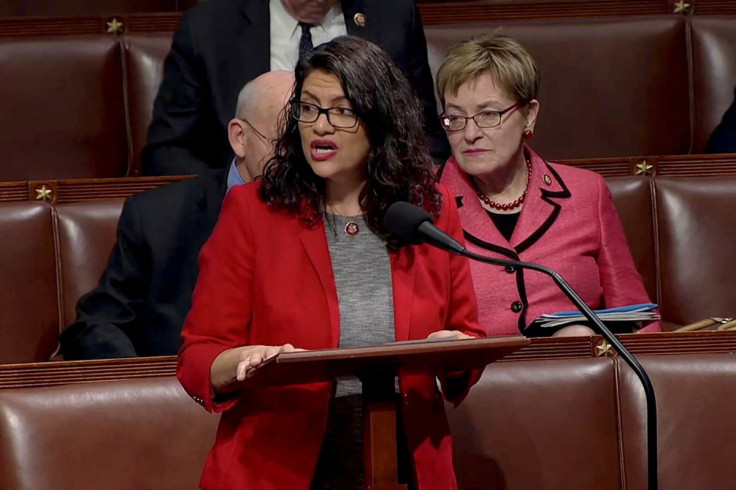U.S. House Democrats Voice Mixed Views On $10 Billion COVID Aid Bill

U.S. House of Representatives Democrats had a mixed response to the $10 billion Senate-negotiated COVID relief deal, with some offering grudging support for a bill with less than half of what the White House sought and others wanting to hold out for more.
Prominent progressive Representative Rashida Tlaib said she was not sure it made sense to pass a bill she considered too small and offered comments suggesting that Democrats could have trouble passing the measure in the House that they control by a narrow 221-209 margin.
Senate negotiators led by Republican Mitt Romney on Monday unveiled the $10 billion COVID bill that dropped international aid from the package. President Joe Biden had sought $22.5 billion.
Tlaib told reporters she has not decided whether to support the bill, arguing that the United States has an obligation to ensure adequate global resources in the fight against COVID-19.
"A lot of the success that we can have in crushing COVID-19 is making sure we understand that this is a global issue, just like climate," said Tlaib, a member of the progressive group known as "The Squad."
She dismissed the argument put forward by colleagues that Congress should pass what it can and return to the international question later. "That's always the argument. But shouldn't we try to do it right?" Tlaib said.
Others offered grudging acceptance for a measure they want to pass before Congress leaves for a two-week break.
"I'll support it. But I think it kind of sucks," House Rules Committee Chairman Jim McGovern told Reuters.
"They left out a big chunk of what needs to be done, and that is the international assistance," he said, adding, "I mean, I don't know what planet they're living on. But the bottom line is, if you want to control the variants, you have to know it's about focusing on more than the United States."
The amount is a tiny fraction of the $4.6 trillion Congress has approved since early 2020 to fight the virus, much of which was devoted to offsetting its heavy economic hit.
No. 2 House Democrat Steny Hoyer told reporters on Tuesday he expected the chamber to vote on the $10 billion bill soon.
"That legislation hopefully will be coming from the Senate very soon and I intend to put it on the floor as soon as we receive it," Hoyer said.
A top House Republican showed little immediate interest in the legislation.
"We haven't seen the final details, nor how many other Republicans in the Senate - if they even have 60 votes to move it," Representative Steve Scalise, the No. 2 House Republican, told a news conference.
"One of the things we've been talking about is getting the economy open," he said. "That'll solve a lot of these problems."
Early this month, Congress failed to pass a $15.6 billion relief bill amid Republican opposition to new federal spending. Many Democrats, meanwhile, rebelled against taking back some money earmarked to help state and local governments in order to pay for the new round of coronavirus relief.
Representative Angie Craig of Minnesota, a House Democrat who opposed the original package because it would have re-purposed American Rescue Plan allocations for her state, told reporters she would support the new agreement on COVID-19 funding.
"I'm glad to see that folks went back to the negotiating table and came up with a solution that is good for more members," Craig said. "$253 million to Minnesota. That's what it meant. We're here to fight for our constituents, we're here to fight for our states, so we'll see where we go with the global aid."
© Copyright Thomson Reuters {{Year}}. All rights reserved.





















